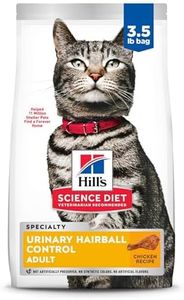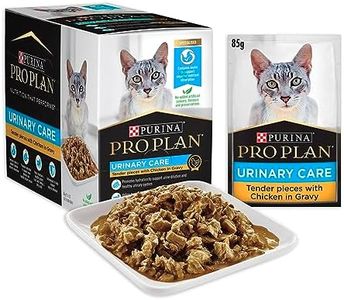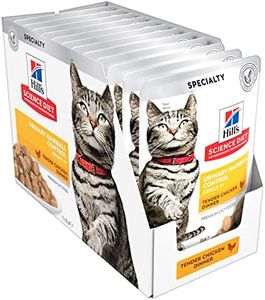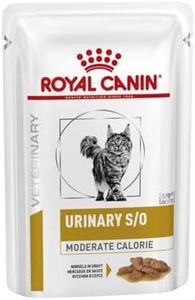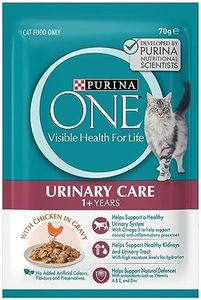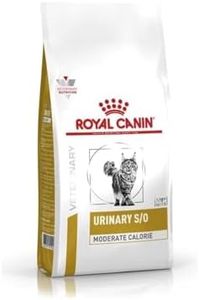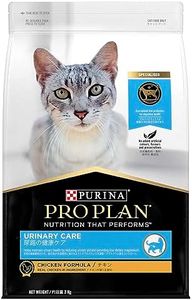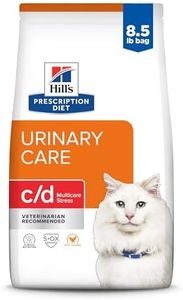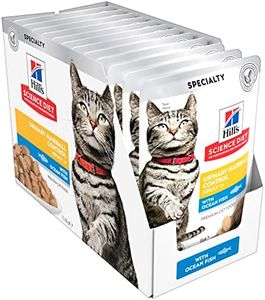We Use CookiesWe use cookies to enhance the security, performance,
functionality and for analytical and promotional activities. By continuing to browse this site you
are agreeing to our privacy policy
10 Best Cat Urinary Tract Food
From leading brands and best sellers available on the web.Buying Guide for the Best Cat Urinary Tract Food
Choosing the right urinary tract health food for your cat is about ensuring their diet supports their unique health needs while still making mealtime enjoyable. This type of food is specially formulated to support urinary tract function, reduce the risk of urinary issues, and keep your cat hydrated and comfortable. When selecting a urinary care cat food, it's essential to look at several key nutritional and ingredient aspects to match your cat's preferences and health requirements.Magnesium ContentMagnesium is a mineral that, in high amounts, can contribute to urinary crystal formation in cats. This is important because crystals can lead to blockages or infections, which are especially risky in cats prone to urinary tract issues. You'll find urinary tract foods often labeled as 'low magnesium.' Ultra-low magnesium levels may help cats with a history of crystals, while modest reductions are fine for those without specific issues. If your cat has been diagnosed with urinary problems, choose food with the lowest recommended magnesium for extra protection, but otherwise, moderate control often suffices for general urinary health.
Moisture ContentMoisture content refers to the amount of water in the food and is much higher in wet (canned) food than in dry kibble. High moisture foods are beneficial for urinary tract health because they help keep your cat hydrated and dilute their urine, reducing the risk of crystal and stone formation. If your cat is prone to urinary problems or doesn't drink much water, consider wet food, which can offer 70-80% moisture. For cats who like kibble or need mixed feeding, opt for foods on the higher end of moisture content, or supplement with added water or broth.
pH BalanceThe pH of your cat’s urine is a key factor in urinary health. Urinary tract foods are formulated to maintain a slightly acidic pH, typically between 6.0 and 6.5, which discourages the formation of certain types of crystals. Foods will sometimes advertise 'urine pH control' or 'pH balanced for urinary health.' If your cat’s vet has told you they need a specific pH control, look for foods that highlight this feature. Otherwise, any urinary care food that mentions pH balance should be sufficient for general maintenance.
Protein Source and QualityProtein source and quality affect overall health and can impact urinary health. High-quality animal proteins are more easily digested and generally better for your cat, but too much protein—especially plant-based—might contribute to stone formation in sensitive cats. For most, foods with named meat sources and moderate to high-quality protein provide balanced nutrition and urinary support. If your cat is on a vet-restricted diet, look for foods with protein sources your vet recommends, otherwise, focus on recognizable animal protein ingredients.
Added SupplementsUrinary tract foods often contain ingredients like DL-methionine or cranberry extract, which support the urinary system by acidifying urine or reducing bacterial adhesion. While not all cats need these extras, they can be helpful for those with previous urinary tract issues. If your cat has had past issues or the vet recommends it, choose a food with these added supplements. For others, these extras can still offer preventative benefits but aren't strictly necessary.
